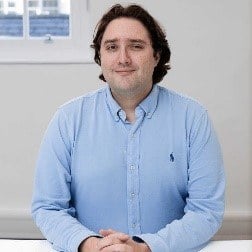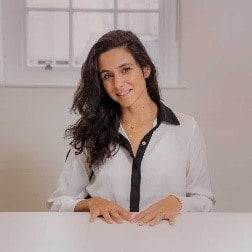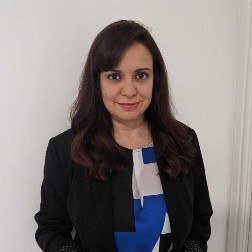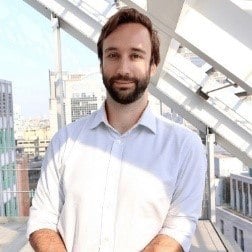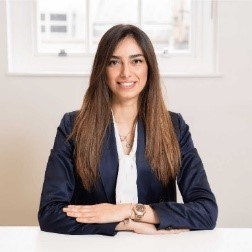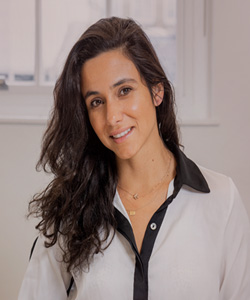Green Guide Profile: Pogust Goodhead
Group litigation firm Pogust Goodhead (formerly PGMBM) has deep expertise and experience in high stakes, high value environmental and consumer claims, representing clients across the UK and internationally. The firm was specifically created for the purpose of bringing to justice global corporations responsible for human rights and environmental breaches.
The firm is at the forefront of group emissions claims, representing over a hundred thousand victims in these actions against various automobile manufactures pursuant to allegations that companies installed defeat devices designed to reduce emissions in order to falsely pass regulatory approval tests.
The firm has a unique connection to Brazil with new offices opening in Rio de Janeiro in July 2022. Managing partner Tom Goodhead leads the High Court representation of over 200,000 victims of the 2015 Fundão Dam disaster against the mining company BHP. This is deemed to be Brazil’s worst environmental disaster in history impacting nearly 700 km of waterways and will be one of the largest group litigations by number of claimants in UK history.
The firm is also representing 11 individuals from the city of Maceio in Brazil against petrochemical giant Braskem regarding significant environmental destruction, including an earthquake resulting from its mining activities.
The team at Pogust Goodhead has a wide range of experience across environment and international human rights law. Team members work relentlessly on cases around the globe relating to environmental damage and the abuses of multinational corporations.
Led by Global Managing Partner Tom Goodhead, and ESG expert Ana Carolina Salomão, the team also includes Felipe Hotta, Jade Weiner, Jessica Pineda, Matthew Hunt and Tacy Matias Correia. They are committed to promoting access to justice for thousands of victims where environmental catastrophes and toxic spills have caused lasting health consequences and major economic disruptions.
Pogust Goodhead has successfully secured several landmark judgements in order to get justice for thousands of victims. With a unique understanding of environmental law for clients ranging from individuals, indigenous and religious communities, to businesses and local governments, their work has set precedents to help the disadvantaged and protect the environment from further damage.
Earlier this year, Pogust Goodhead secured a landmark, unanimous judgment from the Court of Appeal that allows over 200,000 victims of the Mariana Dam disaster, Brazil’s worst ever environmental disaster, to seek redress against the world’s largest mining company, BHP, in the Courts of England and Wales.
Their litigation relating to the diesel emission scandals, which over 1 million people have signed up to, not only addresses two of the four pillars of decarbonisation (energy efficiency and fuel switching) but also the many problems caused by air pollution.
Alongside litigation, the team have become influencers in the environmental policy space, speaking at events and writing commentary on issues such as climate litigation, rights of nature and hosting debates with parliamentarians and campaigners on air pollution.
Pogust Goodhead, formally known as PGMBM, is passionate about championing justice for the victims of wrongdoing by large corporations. The four-year-old firm specialises in large scale group litigation against organisations that mistreat, mislead, or injure people. Their mission is to become the world’s leading plaintiffs’ firm fighting cases and causes which have the power to improve the lives of tens of millions of people.
The firm represents a diverse range of clients against multinational corporations, governments and institutions around the world and all of their cases have a strong ESG aspect.
Pogust Goodhead is currently litigating some of the biggest claims in English legal history, including claims arising from the collapse of the Fundão Dam in Brazil, and several other significant environmental disasters in that country.
In July 2022, the firm secured a landmark, unanimous judgment from the Court of Appeal that allows over 200,000 victims of the Fundão dam disaster (Brazil’s worst ever environmental disaster) to seek redress against the world’s largest mining company, BHP, in the Courts of England and Wales.
More recently, the firm has been successful in securing the jurisdiction of the Dutch courts to hear a multi-billion dollar claim against Latin America’s largest petrochemical company Braskem, and – in the third ruling of its kind this year – secured jurisdiction in the Dutch courts on behalf of thousands of victims against aluminium producer Norsk Hydro and its subsidiaries.
The London based organisation is at the forefront of claims against automotive firms over the diesel emissions scandal, representing hundreds of thousands of affected clients. They have secured historic settlements in the Volkswagen NOx Emissions Group Litigation in May 2022. They are leading other group cases against Mercedes and other automotive firms over diesel emissions scandals.
Has your firm established a dedicated ESG/climate change/sustainability practice, team or task force?
We represent a diverse range of clients against multinational corporations, governments and institutions around the world and all our cases have a strong ESG aspect. Our case against BHP over the Mariana dam disaster, the worst environmental disaster in Brazil’s history, and against Braskem in the Netherlands over the devastation and destruction wrought by their salt mining operations, are examples of this. In addition, our litigations in relation to the diesel emission scandals not only address two of the four pillars of decarbonisation (energy efficiency and fuel switching) but also the many problems of air pollution.
Besides of our litigation work, Pogust Goodhead incubates two “hubs”, one for climate change and one for human rights, although the two topics are of course related. The hubs are essentially groups of colleagues at all levels – they are open to everybody – that share and present ideas, knowledge, and developments in order to explore and foster new ways to use the law to create positive change. For example, our climate hub held a day-long “hackathon” on rights of nature in spring 2022, bringing together a range of academics, activists and practitioners to explore how to introduce rights of nature to this jurisdiction. Both hubs have led to an exciting range of potential litigation which we are currently investing in, but for now remain confidential, so unfortunately, I cannot share details. Perhaps in next year’s edition!
What type of work do you handle in connection with “green change”?
Energy transition: Our litigations in relation to the diesel emission scandals address two of the four pillars of decarbonisation (energy efficiency and fuel switching) and our work in relation to environmental protection, deforestation and rights of nature addresses another one of the pillars (carbon capture).
Corporate accountability: We specialize in complex products liability and mass tort actions seeking to hold companies to account for violations of consumer rights, and labour and/or environmental standards.
Respect for human rights: We work on strategic litigations involving civil liability for human rights violations. In practice, human rights litigation often involves transnational facts since multinational companies may cause damage in third countries where they conduct business activities. Our firm’s global reach facilitates the work on cross-border ESG issues.
Sustainability: We also work with NGOs in Brazil on developing the general regulatory framework regarding human rights due diligence and environmental due diligence in the supply chain.
Impact investment and sustainable finance: Pogust Goodhead is a pioneer in Litigation Finance. As the cases pursued by Pogust Goodhead are funded by investment funds and hedge funds around the globe, this firm is the first impact investment product in litigation finance in the world.
Would you like to highlight a particular area of strength?
Team members across our staffing cohort are passionate about making the world a better place one case at a time, and one action at a time. We pride ourselves on being socially conscious, morally aware and intentionally impactful. Case impact assessments accord with the UN sustainability goals, including empowering marginalised individuals and groups, promoting accountability and promoting human rights and environmental sustainability.
Has your firm implemented any internal best practises?
We’re signatories of the UN Global Compact.
Has your firm joined any external ESG-related projects, networks or initiatives?
We are part of the One Humanity One World Manifesto, United Nations Alliance of Civilizations, which discusses the future of artificial intelligence in light of human rights and how to use artificial intelligence as a valuable tool to leverage access to justice.
We are took part in the Government Framework Litigation Roundtable at the London School of Economics – LSE.
We also work with Instituto Clima e Sociedade (iCS) in Brazil on research and development of the general regulatory framework regarding human rights due diligence and environmental due diligence in supply chains.
We are exploring how to introduce rights of nature to litigation, both in Latin America in relation to forests and in England & Wales in relation to rivers, and to that end we collaborate with Lawyers for Nature, the Environmental Law Foundation and Dr Joanna Smallwood, among (many) others.
Also, we work with the association YAP Brasil to train young indigenous people to become leaders. With YAP Brasil, we provide courses about advocacy and human rights law.
What are your firm’s ESG-related goals?
We aim to change the world one case at a time. We do this by:
- Using the practice of law to accelerate the just transition and have a positive impact on people and the planet.
- Using litigation to improve corporate accountability and respect for human rights.
- Using litigation to foster the implementation on the four pillars of decarbonisation (electricity decarbonisation, energy efficiency, fuel switching and carbon capture).
- Using litigation and litigation funding as mechanisms to overcome barriers to access to justice across the globe.
Is your firm involved in any relevant pro bono work?
We work on a pro bono basis on behalf of thousands of indigenous and quilombolas in Brazil, impacted by transnational companies.
Among the different indigenous groups that we represent, we represent the Krenaks, Pataxós, Guaranis and Tupiniquins.
Those vulnerable groups receive special attention from our firm. Some groups do not have access to internet and some groups are only fluent in their native language (which is not Portuguese). All the meetings are always attended in person and inside their territories. We always check for the community Consultancy Protocol to ensure that we are following their culture and protocol. An expert in indigenous culture is always present in those meetings. All the correspondence is explained in person as well.
Is your firm involved in any public outreach or client education?
We work with YAP Brasil to provide a training on human rights law and advocacy to young indigenous people. Our firm donated 30 laptops last year, so those young indigenous could complete the training. With our partnership with YAP Brasil, we were able to train some of our own clients from different indigenous communities.
As already mentioned, we’re currently working on the research and development of the general regulatory framework regarding human rights due diligence and environmental due diligence in the supply chain.
Moreover, All PG team members are allocated two days per year to participate in various Corporate Social Responsibility projects. The diversity of the projects ensures a wide scope of reach and impact across various causes while empowering PG team members to engage with causes which are individually meaningful to them. Initiatives across our international offices include providing advice on topics of environmental law, volunteering with hunger relief initiatives involving senior citizens and soup kitchens, as well as promoting awareness about causes such as Clean Air Day, encouraging action to achieve cleaner air quality.
Have there been any recent non-confidential stand-out matters that were particularly innovative, pioneering or complex?
We are pioneers in complex transnational litigation seeking to hold companies to account for violations of ESG standards. We have been successful in overcoming the jurisdictional challenges that often present in these complex cases. Three of our recent successful rulings are worth mentioning. These are the rulings in the case against BHP over the Mariana dam disaster, the worst environmental disaster in Brazil’s history, against Braskem in the Netherlands over the devastation and destruction wrought by their salt mining operations in northeast Brazil, and against Norsk Hydro in the Netherlands over their pollutive activities at a site in Barcarena, Pará, north Brazil, that have caused untold damage to the environment and public health in the surrounding area.
There are several challenges when running a mass class action. We have to produce individual schedule of losses for each of our clients, manage the cases and engage with our hundreds of thousands of clients respectfully and efficiently. To make it possible, our team of lawyers work closely with the technology team to develop artificial intelligence solutions which can be used in dynamic pleadings to produce a schedule of loss for each client.
Finally, Pogust Goodhead is a pioneer in Litigation Finance, the area that I manage. As the cases are funded by investment funds and hedge funds around the globe, this firm is the first impact investment product in litigation finance in the world.
When did ESG, climate change and/or sustainability become an area of focus at your firm?
Since day one, as the firm was founded to litigate the Mariana and the Emissions cases. We started using the ESG terminology when I joined, in 2019, but Pogust Goodhead’s ethos has been green and social from day one.
What has driven your firm’s involvement in a green transition? (Client demand? Business case? Personal attitudes/beliefs/initiatives?)
It is part of our DNA, anchored in our culture and the very reason why this firm exists.
Do you have any strategic plans to expand your work or your initiatives in this area in the future?
We are exploring new ways of working, including how to help communities access justice in spaces which traditionally have little accountability. For example, we are researching transnational, coordinated litigation against major polluters and “greenwashers”, and are particularly interested in accountability in global supply chains. We are also in partnership discussions with the climate lab of an English university, aiming to combine their academic research with our practical experience.
Rights of Nature: what are they, where do they come from, and why are they important?
Pogust Goodhead shortlisted for The Lawyer European Awards 2022
Victims of Brazil’s ‘sinking city’ receive positive news to have case heard in the Netherlands
Mariana dam disaster claim gains media attention after landmark judgement released
Government delay on ‘Dieselgate’ linked to thousands of deaths
Dieselgate scandal: Five years on- Why the fight for clean air is not over
Three years on from Brumadinho dam disaster TUV SUD face £400 million lawsuit
2022: A decisive year for Mariana dam disaster victims

